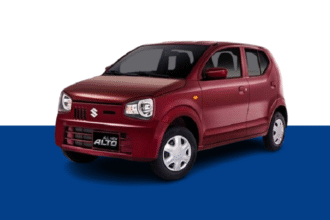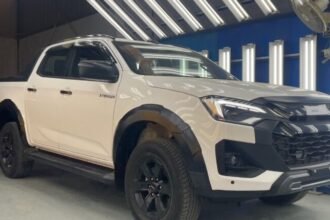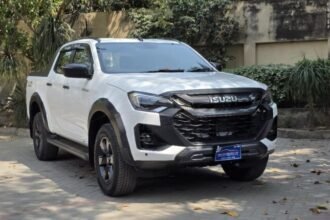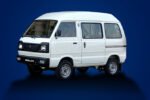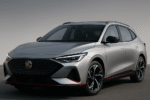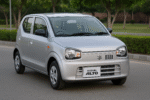Introduction
Honda Atlas Starts Exporting Locally Assembled Cars In a historic step for Pakistan’s automotive industry, Honda Atlas Cars Pakistan Limited (HACPL) has officially started exporting locally assembled vehicles to international markets. This development marks a significant shift for Pakistan — from being a vehicle importer to becoming a contributor to the global automobile export landscape.
This article explores what this move means for the country, the automotive sector, Honda’s future roadmap, and how this could shape Pakistan’s place in the international car manufacturing ecosystem.
Honda Atlas Export Marks a Historic Milestone in Pakistan’s Auto Sector
For years, Pakistan’s car market has been primarily consumer-oriented. Vehicles were either imported as completely built units (CBUs) or assembled locally with limited localization. However, with Honda Atlas’s first-ever vehicle export, Pakistan takes a crucial step toward becoming an automotive exporting country.
Honda’s move sends a powerful message: Pakistan has the industrial capability and quality standards to produce cars for the world.
Where Honda Atlas Is Exporting Its Locally Assembled Cars
The first batch of exported vehicles is reportedly heading to developing countries in Africa and the Middle East, where demand for fuel-efficient and compact vehicles is on the rise.
The Honda BR-V, a locally assembled 7-seater crossover SUV, has been chosen as the inaugural export model. The BR-V’s reliability, practicality, and affordability make it well-suited for these markets, where rugged conditions and economic sensibility play a crucial role in vehicle purchasing decisions.
Why Honda Atlas Is Exporting Locally Assembled Cars from Pakistan
There are several strategic reasons behind Honda Atlas’s decision to start exporting from its Pakistani plant:
1. Robust Manufacturing Capacity
Honda Atlas’s facility in Lahore has an annual production capacity of over 50,000 units. The plant is equipped with advanced Japanese manufacturing systems, enabling it to meet global quality standards.
2. Competitive Labor and Production Costs
Pakistan offers affordable labor, a growing base of technically trained professionals, and a strong vendor network, making the cost of production significantly lower compared to other regions.
3. Supportive Government Policies
The Government of Pakistan’s Auto Industry Development and Export Policy (AIDEP) 2021-26 offers incentives for automakers that export vehicles or localized parts. These include tax breaks, duty exemptions, and regulatory facilitation.
Honda Atlas in Pakistan: A Brief Overview
Honda Atlas Cars Pakistan Ltd. is a joint venture between Honda Motor Company Japan and Atlas Group Pakistan, operational since 1992. It is one of Pakistan’s “Big Three” automakers, alongside Toyota Indus and Pak Suzuki.
The company currently produces:
- Honda Civic
- Honda City
- Honda BR-V
All of these are assembled locally with increasing levels of localization, particularly in components like body panels, tires, batteries, seats, and wiring.
Honda Which Models Are Being Exported?
At this stage, the Honda BR-V has been confirmed as the first model for export. The Honda City is expected to follow soon due to its strong demand, both locally and in global markets.
Both models offer:
- High fuel efficiency
- Durable engineering
- Competitive pricing
- Flexibility in varied climates
These qualities make them ideal for international buyers, especially in price-sensitive markets.
Economic Impact on Pakistan
The export of locally assembled vehicles has significant macroeconomic benefits for Pakistan:
1. Boost to Foreign Exchange Reserves
Exporting cars earns foreign currency, helping improve Pakistan’s balance of payments and reducing reliance on remittances.
2. Job Creation
Expansion in manufacturing and logistics will create jobs in areas such as quality assurance, supply chain, shipping, and warehousing.
3. Strengthening the Local Auto Parts Industry
More exports will drive automakers to localize more components, which boosts the local vendor industry and reduces dependency on imports.
Challenges Along the Way
Despite the positive outlook, some challenges must be addressed for sustainable growth:
1. High Dependence on Imported Raw Materials
Most critical automotive parts are still imported, making the final product vulnerable to foreign exchange volatility.
2. Currency Fluctuations
Sharp movements in the Pakistani Rupee (PKR) against the US Dollar (USD) can impact Honda’s margins on exports.
3. Logistic and Regulatory Hurdles
Exporting requires efficient port handling, documentation, and compliance — areas where Pakistan still faces delays and bottlenecks.
What the Government Can Do to Help
To encourage vehicle exports, the government can take several proactive steps:
- Expand Special Economic Zones (SEZs) for auto manufacturers
- Provide incentives for localized component production
- Enhance infrastructure at ports and industrial hubs
- Establish automotive R&D centers in collaboration with universities
- Ensure policy consistency and political stability for long-term planning
How Pakistan Compares Regionally
While Pakistan has taken its first step, countries like India and Thailand have long been strong players in the global auto export market.
| Country | Annual Car Exports | Major Exported Brands | Export Focus Since |
|---|---|---|---|
| Thailand | 1.2 million | Toyota, Honda, Mitsubishi | Early 2000s |
| India | 600,000+ | Suzuki, Hyundai, Tata | Mid-2000s |
| Pakistan | Just started | Honda (BR-V) | 2025 |
Though behind in volume, Pakistan has the potential to catch up, especially in segments like compact sedans and entry-level SUVs.
Honda Industry Reactions and Expert Opinions
According to auto industry analyst Suneel Sarfraz Munj, Honda’s export strategy is a “leap forward for Pakistan’s industrial image.” He emphasized that successful exports will increase investor confidence and open the door to more foreign direct investment (FDI).
The Pakistan Association of Automotive Parts and Accessories Manufacturers (PAAPAM) also hailed the move, stating that it will “stimulate demand for local auto parts,” thereby strengthening the entire automotive ecosystem.
Public Reaction: National Pride and Optimism
For the average Pakistani consumer, this development has evoked feelings of pride. Seeing “Made in Pakistan” vehicles being shipped abroad is a strong validation of local talent and industry capabilities.
There is also hope that increased exports will improve domestic quality standards, as manufacturers aim to meet international expectations Honda.
Honda Future Plans and Prospects
Honda Atlas has signaled that this is just the beginning. Over the next few years, the company aims to:
- Expand export operations to more countries in Asia and Africa
- Launch Honda hybrid and electric variants for export
- Localize high-tech components such as infotainment systems, ECUs, and transmissions
- Collaborate with local tech institutions for R&D in automotive innovation
Honda Potential Impact on Other Automakers in Pakistan
Honda’s export success could prompt other automakers in Pakistan to follow suit. Companies like:
- Toyota Indus Motor Company
- Pak Suzuki Motors
- Kia Lucky Motors
- Hyundai Nishat
- Changan Pakistan
may now look seriously at exporting locally assembled vehicles or parts. The first mover advantage taken by Honda may well open the floodgates for Pakistan’s global auto presence.
Honda Conclusion: A New Chapter for Pakistan’s Honda Industrial Identity
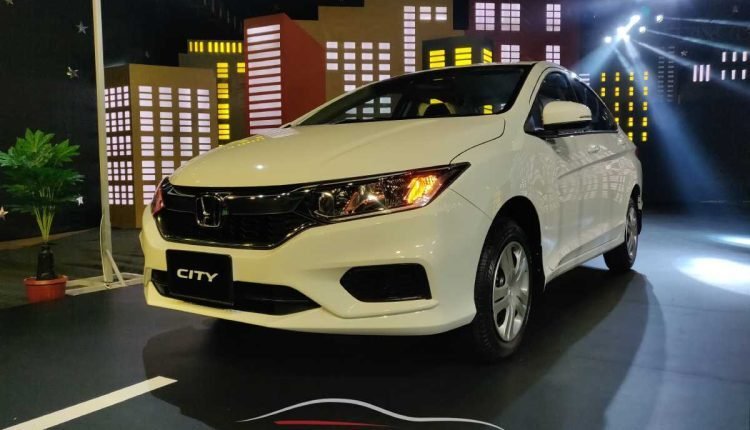
The commencement of vehicle exports by Honda Atlas is more than just a business milestone — it’s a symbol of national progress and global integration. With the right support from policymakers and continued focus on quality, innovation, and cost-efficiency, Pakistan could very well emerge as a regional hub for automotive exports.
As the country’s auto industry transitions from an import-based market to aHonda production-and-export-driven economy, the dream of seeing “Made in Pakistan” cars on international roads is no longer just a dream — it’s becoming a reality.
More Articale
MG ES5 EV Coming to Pakistan – International Features
GWM Tank 500 PHEV Arriving Pakistan – International Specs & Features
Capital Smart Motors Signs MoU with Geely to Launch NEVs in Pakistan
ask anything



